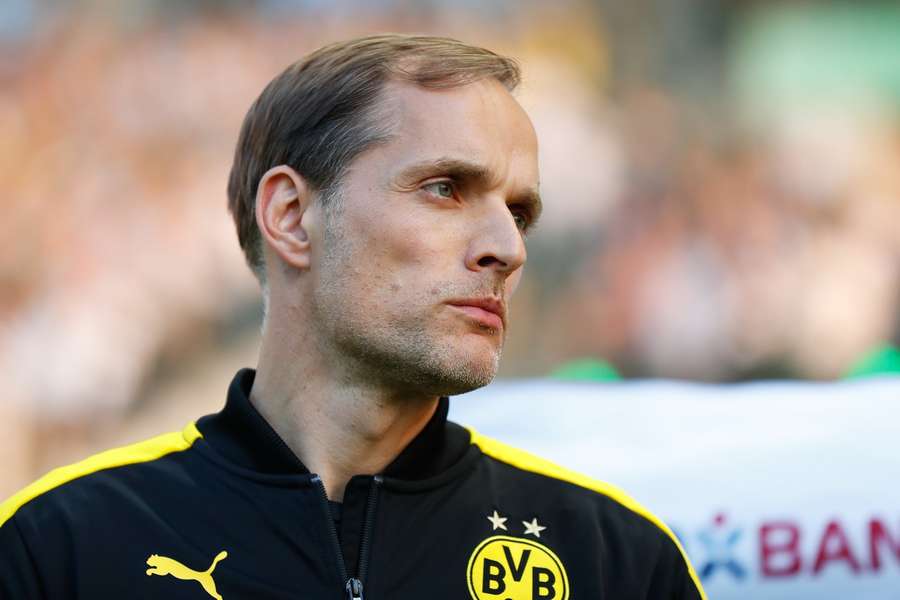In this Flashscore history lesson, we go into the football archives and shed light on the history of the most beautiful sport. Today we're looking at how Thomas Tuchel's inglorious departure from Borussia Dortmund came about.
The topic of choice is obvious. Just in time for Saturday's summit meeting, which has been hyped up into a classic, Bayern Munich made a coaching change. Julian Nagelsmann (35) was ingloriously removed from his post, and in his place someone was installed who Dortmund fans have very special memories of.
This is not the first time that Thomas Tuchel (49) has been asked to lead a top German club in a new direction. In the summer of 2015, he arrived at the Westfalenstadion with great anticipation. In 107 games, he managed a points average of 2.12 per game. Then came the hard break with one of the most powerful men in German football - Dortmund's managing director Hans-Joachim Watzke (63).
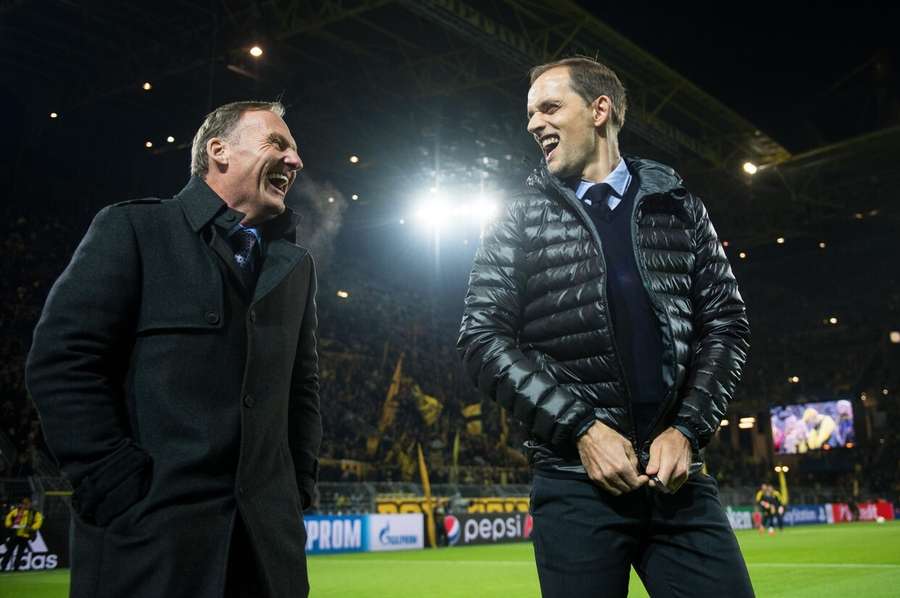
The split divided the black-yellow fan camp into two. There are those who think they cut their own flesh with the dismissal. To date, none of Tuchel's successors has a better points average. And there are others who claim that Watzke did everything right. Tuchel did not fit in at Dortmund, was too difficult and stubborn a character to take over Jurgen Klopp's legacy.
It is not my intention to find someone to blame. Instead, I want to trace the relationship between Tuchel and Borussia - in all its ups and downs. At what point did they drift apart? What were the key scenes in a relationship that lasted two years and was accompanied by many problems? Would a reconciliation have been conceivable? And how much Tuchel from then is the Tuchel of today?
There is magic in every beginning
In 2014, Tuchel had 14 years behind him as coach in Stuttgart, Augsburg and Mainz. With the "Bruchweg Boys" Lewis Holtby, Andre Schurrle and Adam Szalai, he caused quite a stir in his debut season. He made his debut as Mainz coach at the age of 35.
With his modern, sports science-based training methods, his authority and his tactical understanding, he quickly built up an excellent reputation. Sensational victories such as a 2-1 win over Bayern in only Tuchel's third Bundesliga game as well as his side's fifth place in the 2010/11 season contributed to the myth-making. It quickly became clear that this guy was destined for greater tasks.
Before that happened, he took a one-year break from the limelight. He followed the 2014/15 season as a private citizen from his own living room. He used the time off to devote himself to his family. When it gradually became apparent that Dortmund icon Klopp would terminate his contract with the side, Dortmund's then sports director Michael Zorc contacted him. The sabbatical was over.
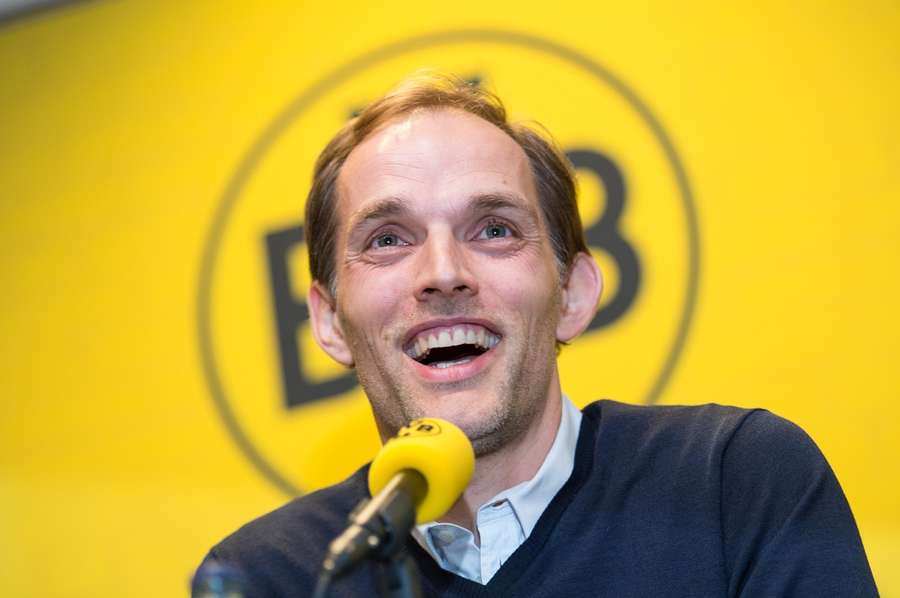
"When the request came, it was just clear: this is how it must feel when a club asks if you want to be a coach. And then everything has to go aside, you just have to say: Yes! When do I have to be where?", Tuchel told the club's own YouTube channel directly after his half-hour inaugural press conference at the end of June 2015.
The hype was huge. It felt right to bring Tuchel to Borussia. Klopp stood for full-throttle football. His successor was also seen as energetic, a representative of an offensive style of play imbued with energy.
"Thomas is the logical choice. He has a clear idea of how he wants football to be played," Zorc explained to the 100 or so journalists present.
The Dortmund team had an extremely mixed season behind them. At one point, they were even worried about relegation, but in the end they just managed to secure a place in the Europa League qualifiers - not an ideal starting situation for the new coach. One week after the first training sessions and performance tests, BVB was to embark on a one-week trip to Asia. The first acid test in European competition would follow soon after.
Nevertheless, Tuchel exuded unwavering optimism:"We will have to compensate because we have no other choice," he said.
"When you get a chance to coach a club in European competition, you have to take it."
Sure, he would have liked more time,"but the situation is what it is."
Half an hour after the new coach had faced the many questions from the public, everything and everyone seemed set for a new era. Klopp had become a legend in Dortmund, but now he was history. It was time for a breath of fresh air. Thomas Tuchel was definitely going to provide that.
14 games unbeaten - and then came Bayern
Right from the start, the German press tried to portray Tuchel's methods as a curiosity. Instead of the traditional lactate test, extensive performance diagnostics were carried out at the sports medicine institute at the Ruhr University in Bochum. An eye test was carried out, respiratory gases were examined, heart rates observed, allowing the head coach to draw up individual training plans.
In the pre-season, BVB had often had injury worries. Tuchel wanted to counteract this.
In addition, his co-trainer Benjamin Weber installed a telescopic camera at the training ground before the training sessions. The unit was to be filmed and then analysed. Today, this is common practice; in 2015, it was still a source of general amusement for the media.
Football fans know that sporting success justifies the means. And the start of the season, under Tuchel, Dortmund were outstanding. They started the new Bundesliga season with five victories. In total, they remained unbeaten for 14 games. In a 4-1-4-1 formation, Pierre-Emerick Aubameyang took on the role of striker. He blossomed completely, having already scored nine goals for the season after seven rounds. Henrikh Mkhitaryan was also convincing as a playmaker.
The defence also seemed to work well. Matthias Ginter proved to have an unexpected offensive drive as a right-back. And the central defence with Mats Hummels and Sokratis Papastathopoulos radiated a lot of security despite some tricky situations that meant some small mistakes. In the first 14 matches, they scored 43 goals, conceding 13.
Before the big match against Bayern on matchday eight, Tuchel was tense. It was against Pep Guardiola, his great idol. At the pre-match press conference, he praised the Catalan with the words: "Guardiola is the best. Even if he wouldn't admit that himself."
Without necessity, the BVB coach decided to make numerous changes. The centre was to be sealed off. With Weigl, Castro and Ilkay Gundogan, all in the starting line-up as three number sixes.
Sokratis was moved to the right side and was supposed to cover Douglas Costa. Shinji Kagawa, on the other hand, took care of Xabi Alonso. In the early stages, Tuchel's very defensive approach seemed to work. After 20 minutes, however, Guardiola decided to make a tactical change. Martinez and Boateng swapped positions in Bayern's three-man backline. From then on, the game was built up from the centre of defence with high balls.
At half-time, Munich led 2-1. After the restart, ex-Borussian Robert Lewandowski, of all people, put the lid on the game with a brace (46th and 58th minute). In the end, it was 5-1 for the big favourites. Thomas Tuchel had taken his first master's test - and had to cope with a crushing defeat.
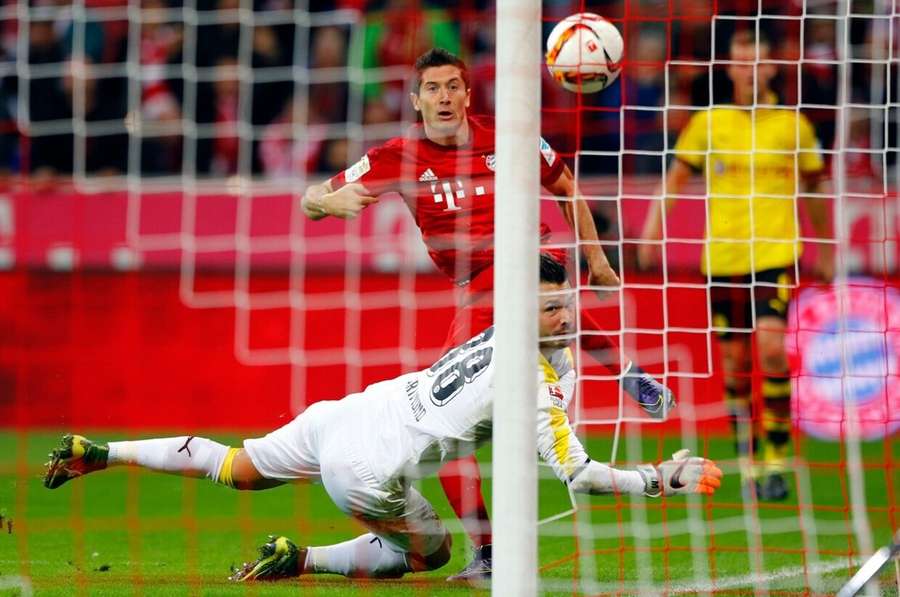
For the first time since 2005 and 2008, Dortmund conceded five goals in Munich. In an interview with Sky, Tuchel expressed his frustration:"We did almost everything right at the beginning, but even then we didn't have the consistency in the final third that distinguished Bayern later on. We have to come back with more bite and attention."
A year without a title
This was to be followed by seven victories in a row for the first time. Apart from a few slip-ups, Dortmund was able to keep pace with Bayern for a long time.
They were to finish the Bundesliga season as runners-up. After the debacle in Munich, they were not to relinquish second place in the table. It was clear, however, that the championship trophy would go to the record champions for the then fourth time in a row. On a national level, Pep's Bavarian FCB resembled too much the Catalan FCB of Guardiola's heyday.
Two other competitions should have provided consolation. The Europa League, in which they were definitely among the favourites, as well as the DFB Cup, in which they didn't show any weakness. In the second round, they defeated Paderborn 7-1 in their own stadium.
Even the Bundesliga teams Augsburg, Stuttgart and Hertha were not to be a stumbling block. On the way to the cup final, Borussia did not have to go to extra time once.
And in Europe? They met Liverpool in the quarter-finals. The Reds were now coached by an old acquaintance. Klopp took over from Brendan Rodgers at Anfield in October 2015 and now came an emotional reunion with his old, black-and-yellow love.
Suddenly they were face to face. Klopp and Tuchel. The old and the new. There the man-catcher Kloppo. The one who led Dortmund to two championship titles, who always had pithy sayings on his lips. He stood for the black-yellow upswing at the end of the '00s like no other.
On the other side was Thomas Tuchel. They know and appreciate each other, even today. Both laid the foundations for a career as world-class coaches in Mainz. They had often exchanged views on the finer points of football in the past. After the draw, Klopp publicly paid respect to his successor:"Thomas Tuchel is a fantastic coach. The players have used the negative experiences of last season and made a huge step forward."
The first leg in Dortmund ended 1-1, and the second leg on Merseyside was to be one of chaos. Tuchel's eleven started strongly, taking a 2-0 lead through the duo of Mkhitaryan and Aubameyang after just nine minutes. Three minutes were played in the second half when Divock Origi reduced Liverpool's lead. Marco Reus restored the gap nine minutes later. Coutinho, Sakho and finally Dejan Lovren with a goal in injury time turned the games in Klopp's favour.
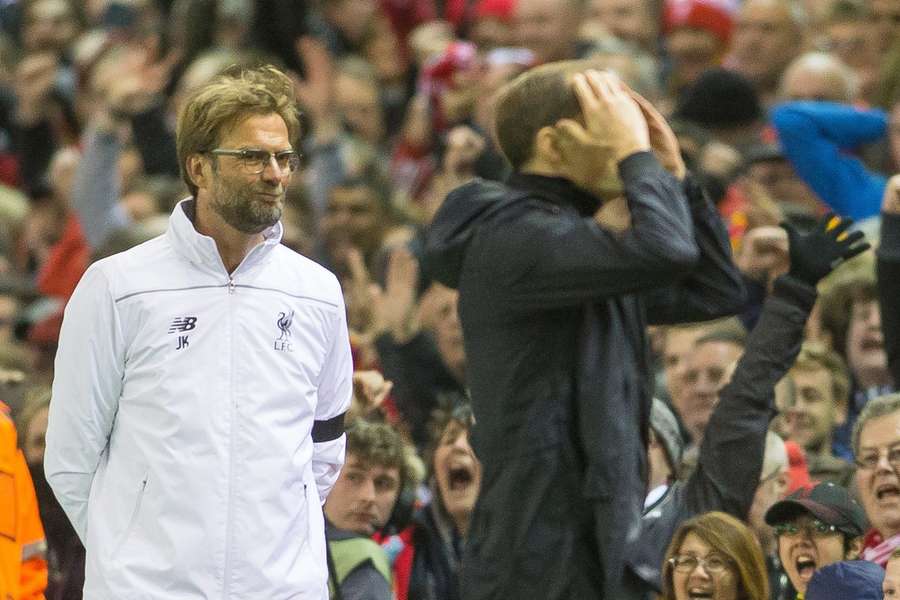
Once again, a landmark top-flight match had slipped from Thomas Tuchel's hands: "We are very empty. It feels like what it is. We were facing a big goal, a milestone. But we didn't make it. We have to fairly admit that after the 3-1 we couldn't cope with the way Liverpool played with great risk."
Liverpool would go on to win the Europa League that same year. Dortmund, on the other hand, would remain titleless for the third year in a row. In the cup final, Tuchel proved he had learned from his mistakes and forced Guardiola's Bayern into a penalty shootout after a 0-0 draw.
He had never been closer to winning his first title in professional football. But Sven Bender and Sokratis both missed their attempts. In the end, Bayern always win. Or do they?
The confounded second year
In terms of points, the first season under Tuchel was the second most successful since the introduction of the three-point rule. Only in the 2011/12 championship season did Dortmund collect more points. Even when they won the championship for the first time under Jurgen Klopp, they finished with 75 points, whereas in the first year under Tuchel they had 78 points after 34 games.
So there was good reason to be optimistic about the future. But the squad planning threw a spanner in the works even before the first matchday. Alongside Aubameyang, Henrikh Mkhitaryan had been the big riser under Tuchel. In 31 league appearances, he had scored 11 goals and set up 20 more.
Watzke and Zorc put a fat deal on the table for him. The offer to extend his contract: a term of four years, plus a salary increase, allegedly around seven million euros per year. Nothing came of it.
However, the Armenian pushed for the transfer. A strange story circulated in the tabloids. Mkhitaryan had informed Tuchel via a laconic text message:"I'm going to Manchester United." That was all it said.
As if that were not enough, Mats Hummels (FC Bayern) and Ilkay Gundogan (Manchester City) also left in the same transfer window.
BVB paid a total of 104 million euros for the three top performers. For the first time, the air between managing director Hans-Joachim Watzke and the coach became really thick. A few weeks earlier, Watzke had promised on high and holy:"It is completely out of the question that all three of them will not be playing for Borussia Dortmund next year. I can rule that out."
Attempts were made to limit the damage. As best as they could, replacements were procured in a rush. The most prominent names: Raphael Guerreiro came from FC Lorient, returnee Gotze from Munich, former Tuchel favourite Schurrle from Wolfsburg for a good £30million. For a certain Ousmane Dembele, 35 million euros were transferred to Rennes.
They were mostly young players with a lot of development potential, but rather not professionals with whom you can immediately attack the title. Tuchel's plan to challenge for the title in the second year after Guardiola's departure for the Premier League was - viewed soberly - doomed to failure from the start. In October, they remained winless for four games in a row. A 2-0 defeat in Leverkusen cost them second place in the table. Three draws later, they had already slipped to sixth place.
A 1-0 home win against Bayern, coached by Carlo Ancelotti, was to be of no use in the long run. Because in the Champions League against Legia Warsaw, they were furious on the offensive but haphazard on the defensive. The game ended 8-4, and a few days later they lost in Frankfurt, narrowly but deservedly.
This prompted Thomas Tuchel to make an incendiary speech. He publicly attacked the team without any mercy: "Technically, tactically, mentally, readiness. Completely. A single deficit, our performance. Starting with the training week, after the Champions League game, until today. From the first to the last minute. A performance that didn't deserve a single point."
A speech that embodied a definitive change of mood. The grace period was over. There was little left of Tuchel, who was still in the best of moods in June 2015. In the remaining four league games until the winter break, the team drew three times. They went into the break in a weak sixth place, now nine points behind the league leaders from Munich.
Watzke tried to placate: "Nothing will change in terms of our goal for the season, direct Champions League qualification, ideally in second place."
Tuchel, however, was increasingly frustrated by the poor squad planning. The team had potential, but demanded a lot of patience from its coach.
He used an African proverb: "The grass does not grow faster if you pull on it.
The bombing and the aftermath
In 2016/17, Kylian Mbappe impressed at AS Monaco as a striker alongside the Colombian Falcao. At the age of just 18, he made it to the semi-finals of the Champions League with the Monegasques. They knocked Borussia Dortmund out of the competition with two wins in the quarter-finals. Mbappe scored three goals in the first and second legs and although it was supposed to be the birth of a future world star, the encounters were remembered for a completely different aspect.
Out of greed, Sergei W. had decided to build a bomb and carry out an attack on the Borussia Dortmund team bus. They had just left the hotel and were on their way to Monte Carlo. They drove through a middle-class estate, past a hedge. Suddenly there was an explosion. Steel bolts hissed through the window panes, the players suffered agony.
Marc Bartra was seriously injured in the arm. Nuri Sahin gave him first aid. The midfielder described the moments impressively in an article for The Players Tribune: "I was sitting next to Marcel (Schmelzer, note) and asked him for a water bottle. He reached over and then... BANG, an explosion.
"Splinters flew through the window. After that, everything was like in slow motion. I didn't know what was happening. I was like... frozen... I think. But my mind, it was racing. It was a span of two seconds. I thought about my whole life. I thought about dying - but also about living. I thought about my family. About my five-year-old son, my one-year-old daughter, about my wife. I felt like they were with me."
The search for the perpetrator was complicated. Only a tip from an Austrian BVB fan and stock market expert put the investigators on the right track.
Sergej W. had speculated in Frankfurt am Main on a crash of the Borussia shares - and wanted to initiate this crash himself with his assassination. He was after big money. The explosion resulted in a smaller crash on the stock exchange than in Dortmund's management.
UEFA showed its insensitive side and postponed the match by only one day. Thomas Tuchel was furious about this: "We would have liked to have been given more time to process what happened yesterday. We felt powerless." Watzke, however, agreed to the quick rescheduling.
In the following weeks, radio silence developed between the two quarrelling parties. They communicated preferably via short statements in the media. Tuchel wanted to protect his players. He knew that they were not capable of a top performance under the given circumstances. The opposing fans in Monaco welcomed Borussia with applause. That did not make up for the trauma they had suffered. Dortmund lost 3-2 and also lost the return match in the Westfalenstadion.
The fact that he was praised in various newspaper commentaries for his empathetic handling of the situation was of little use to Tuchel. Watzke kept a low profile, did not criticise UEFA or put himself in front of his head coach. In an interview with the "WAZ", the BVB managing director was asked some time later whether there was any dissent between him and Tuchel. He answered without beating about the bush:"That is so, yes."
In a business that is usually characterised by empty phrases and superficial politeness - this was a heavy slap in the face. Tuchel, it was clear, was only a temporary coach. The fact that the team managed to finish third in the table, that they qualified for the Champions League without any problems, and that he won the DFB Cup final against Eintracht Frankfurt 2-1 - no longer mattered.
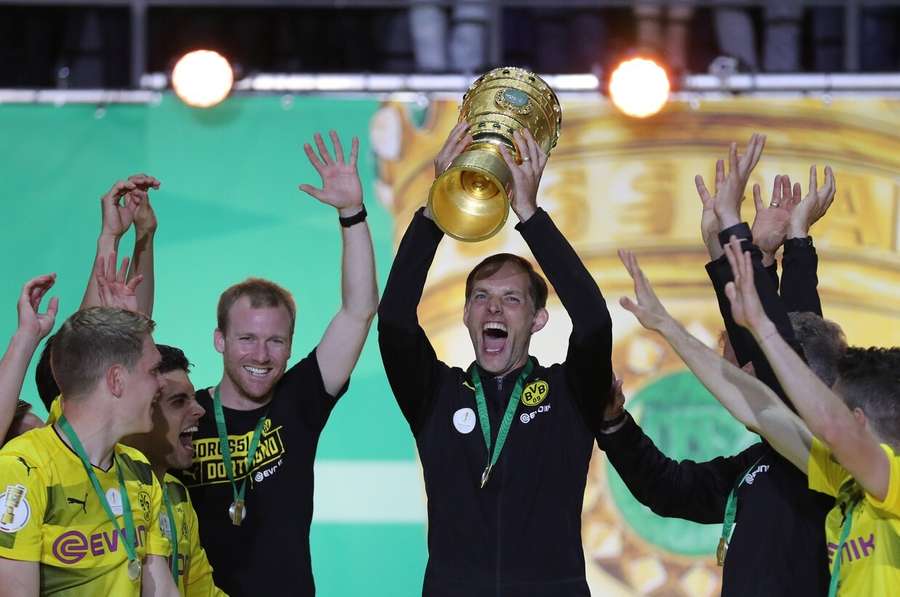
The club announced Tuchel's exit with strange epithets: "BVB attaches great importance to the statement that the cause of the separation is in no way a difference of opinion between two people.
"The wellbeing of the club Borussia Dortmund, which is much more than just sporting success, will always be more important in principle than individuals and possible differences between them."
And today?
The hoped-for era turned into two years. An eventful period in which Tuchel never managed the really big coup in the Bundesliga or the Champions League. The circumstances were difficult as he dealt with Guardiola's ultra-dominant Bayern, the transfer chaos in the summer of 2016 and the attack on the team bus before a landmark duel in the Champions League.
The path Thomas Tuchel and Borussia Dortmund have taken together is full of "what if?" scenarios. What if Tuchel had stayed? Would he have become German champion? Would he even have turned Dortmund into a top European team?
The many dreams that were not lived are an indication that the idea of bringing the energy man Tuchel to BVB was not a bad idea in itself.
On Saturday, Tuchel will meet his old, brief love as Bayern coach. After the coaching rochade at Sabener Strasse became known, Watzke declared (albeit explicitly as head of the supervisory board of the DFL):"For the Bundesliga we say: Welcome back, Thomas Tuchel!".
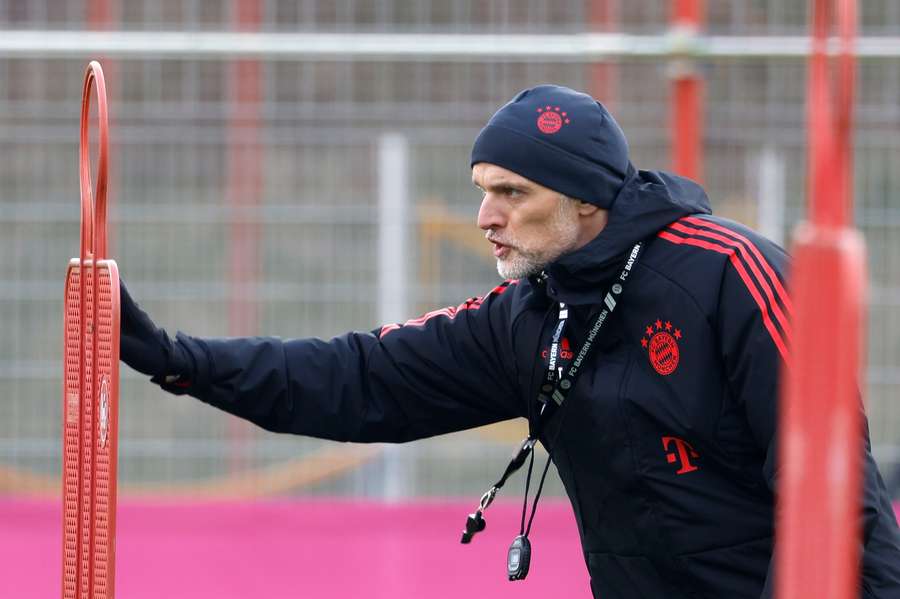
When the coach met Dortmund with PSG and they met Borussia with his star ensemble in the round of 16, the black-and-yellow CEO was naturally asked about the old coach. It didn't matter, Watzke said demonstratively, he was not Klopp. The tablecloth between the two alpha animals is cut and will remain cut. In this respect, the separation in 2017 was without alternative.
But in the meantime - according to reports from France and England - the coach has learned to be gentle. He is said to have developed into a top coach who not only masters the tactics board, but also people management.
Perhaps that is the reason why Dortmund's officials usually talk so disinterestedly about his past. Why you never quite want to buy this emphatic indifference from Watzke and Kehl and Co. Perhaps they react so casually - because inside they occasionally ask themselves the question: What if?

